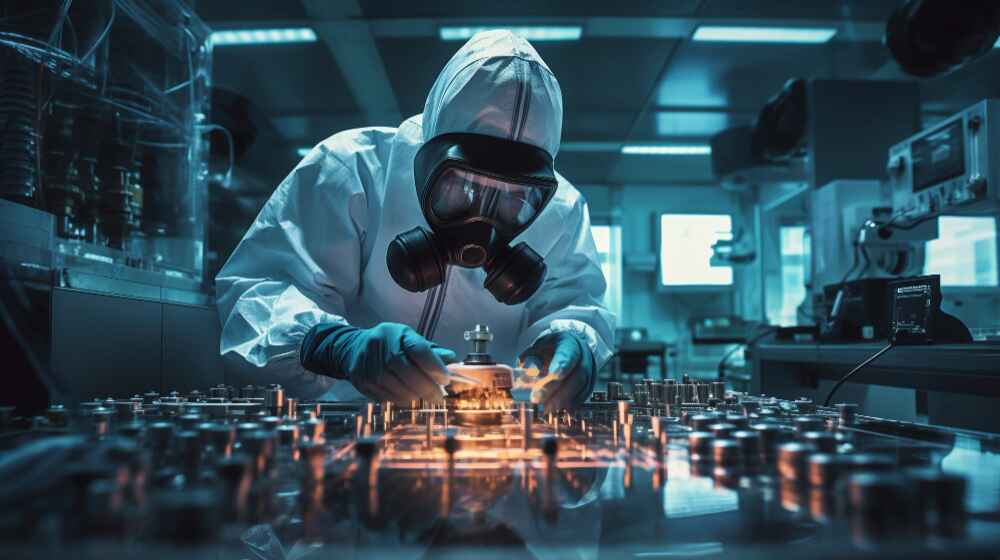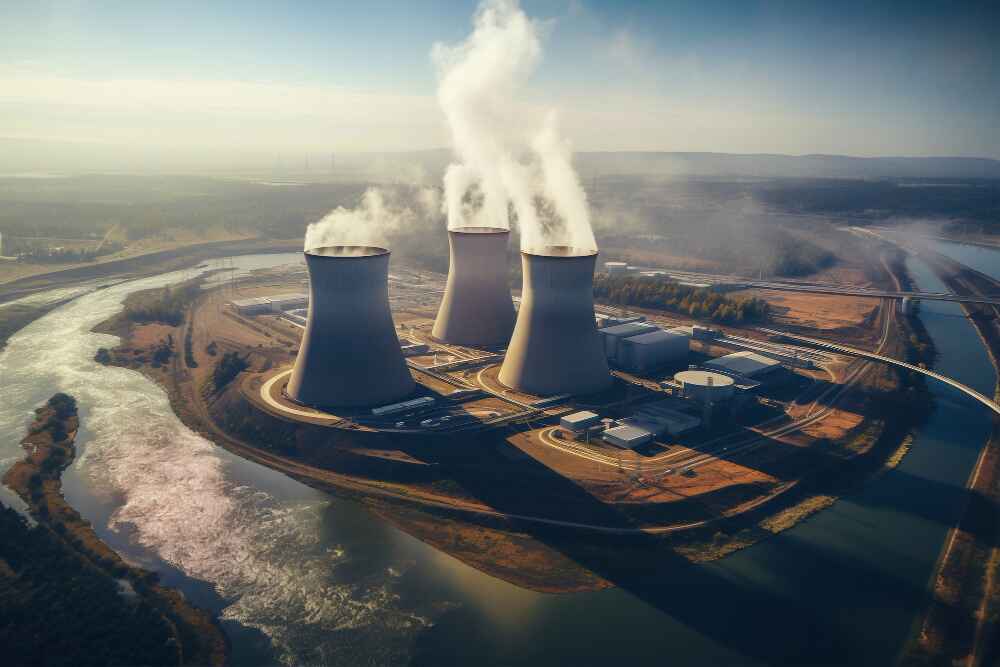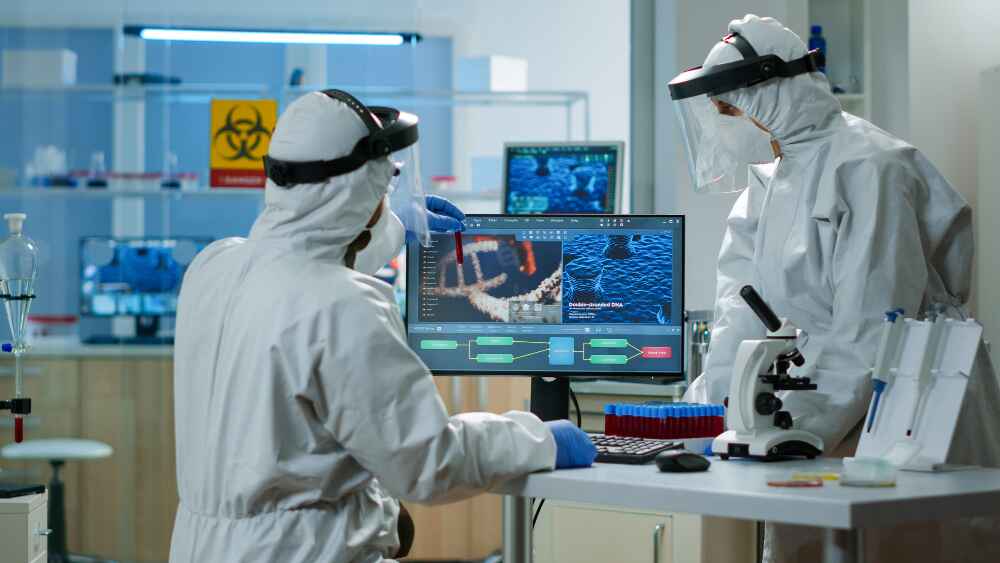Global warming, something we had studied in primary education, seemed a distant phenomenon, confronting the 21st generation. There is a growing awareness of sustainability in the green technology context. This includes the production of adequate energy from renewable resources rather than fuel which has a positive contribution. Then there is reducing waste, and byproducts, leaving a lasting impact.
1. Role of Chemical Engineers in Sustainable Development:
The Role of Chemical Engineers in Sustainability
Let’s be real – chemical engineering might not sound like the poster child for sustainability, but it plays a crucial role in bridging the gap between technological advancements and environmental well-being. Chemical engineers have a strong background in maths, physics, chemistry, energy balance, thermodynamics, kinetics and more. Regardless of their niche, they use the concepts and combination to design processes that are not just eco-friendly but also impactful. They are instrumental in developing and generating cleaner and more efficient processes, products and energy from raw materials, capturing emissions, and measuring contamination concentrations.
The Future of Sustainable Chemical Engineering and How Chemical Engineers Can Help Shape It:
Vigorous research and development is undertaken by chemical engineers to ensure the sustainability of every process. They design, optimise, and implement processes, developing materials from sustainable sources and reducing waste without compromising performance. There is Reaction Engineering – where chemical engineers design processes to be cost-effective, easily disposable, and more efficient than existing technologies.
What problems are chemical engineers currently solving?
One significant challenge is tackling microplastics – those tiny tears in plastics that take ages to decompose. In addition, efforts are being made to scale lab testing processes to an industrial level. Then comes finding alternatives to petroleum-based products with organics, enhancing energy efficiency, storage, and conversion, and integrating carbon capture into wastewater management.
2. Skills Before Starting Chemical Engineering:
Overview of Chemical Engineering:
Chemical engineering is the backbone of sustainability. A strong foundation in math and science is extremely essential. The study integrates chemistry, physics, mathematics, and engineering principles as fundamental tools for success. These skills empower engineers to address challenges in chemical, material, and energy production and processing.
Skills Necessary for Chemical Engineering Success:
Considering a career in chemical engineering? Success in this field requires analytical skills to understand the ‘why,’ ‘what,’ ‘how,’ and ‘what else’ of innovation. Excellent mathematical skills are a significant facet, as chemical engineers work with numbers extensively. Other than that, managerial, interpersonal skills and problem-solving prowess are vital for applying science to development.
Essential Math and Science Skills for Chemical Engineers:
Proficiency in mathematics and science is non-negotiable for chemical engineers. These skills are the cornerstone for analysing and solving complex problems, laying the groundwork for innovation. Whether in a laboratory setting or utilising advanced computer software to complete theoretical models, a deep understanding of thermodynamics, process design and control, and chemical reactions on a fundamental level is required.
How to Refine Your Skills and Enhance Your Productivity as a Chemical Engineer
Chemical engineering is multidisciplinary and fast-growing. Continuous learning and skill refinement are imperative. As a chemical engineer, one needs to stay competitive by embracing the latest technologies. You can build a robust foundation through courses that make you apt in problem-solving, process design, CAD finesse, and commitment to safety.
3. Challenges in Chemical Engineering:
Exploring the National & Global Challenges Faced by the Chemical Engineering Profession: Breaking Down the Complexities of Chemical Engineering
Chemical engineers face dual challenges at national and global levels. Nationally, the chemical engineering domain grapples with the fact that the industry contributes significantly to global emissions, accounting for approximately 15% of the total carbon dioxide released into the atmosphere. Globally, a shift to greener alternatives is evident, with circular economy principles gaining momentum, focusing on product design for reuse and recycling.
Moreover, the chemical engineering profession is intricately tied to the global challenge of water scarcity. By 2025, it is estimated that nearly two-thirds of the world’s population could face water stress conditions. So, the role extends beyond optimising processes to developing water-efficient technologies.
The Future of Sustainable Chemical Engineering and How Chemical Engineers Can Help Shape It:
Vigorous research and development is undertaken by chemical engineers to ensure the sustainability of every process. They design, optimise, and implement processes, developing materials from sustainable sources and reducing waste without compromising performance. There is Reaction Engineering – where chemical engineers design processes to be cost-effective, easily disposable, and more efficient than existing technologies.
Examining the Role that Technology Plays in Chemical Engineering:
Technology is reshaping chemical engineering, ushering in efficiency and sustainability. Notable trends: Virtual replicas enable real-time process simulation, offering once unimaginable insights. Automation and Robotics streamline operations, enhancing safety. Machine Learning and AI analyse data for process optimisation and material discovery. Sustainable Process Intensification minimises resource use and waste. However, with technological strides come challenges. Substantial investments in infrastructure and workforce upskilling are required.
A Deeper Look at Environmental Factors and How They Influence Chemical Engineering:
Growing emphasis on sustainability demands chemical engineers design processes that minimise waste, reduce pollution and embrace eco-friendly practices. Regulatory Landscape and Emission Standards innovate cleaner, more efficient technologies.
Leading the shift to renewable energy, chemical engineers aim to reduce dependence on fossil fuels and cut carbon emissions. Environmental sustainability ties closely with waste minimisation, pushing engineers to design low-waste processes. They pioneer sustainable materials, explore eco-friendly alternatives, and develop technologies for efficient water use, recycling, and sustainable wastewater management.
How the Lack of Resources Affects Chemical Engineering:
Limited resources and inadequate funding hinder progress in chemical engineering. It affects research, lab quality, and equipment. Additionally, restricts large-scale experiments, advanced processes, and hands-on education, potentially leaving the workforce underprepared. Safety measures and equipment maintenance may be compromised, raising the risk of accidents and environmental harm.
Areas with scarce resources face challenges in global innovation and economic competitiveness. Shortages in key raw materials disrupt supply chains, hike costs, and impact essential chemical products. Inadequate investment hampers energy optimisation, contributing to higher consumption and a greater environmental footprint.
Career Challenges & Developing Professional Skills:
Embarking on a chemical engineering career demands continuous skill development for success. It’s about continuous learning and adaptability in a dynamic field. Challenges, from environmental rules to new tech demands, are necessary hurdles. The chemical industry is vastly linked with the global market making it essential to adapt to automation and smart tech. Sustainability calls for the integration of eco-friendly practices which requires interdisciplinary collaboration.
Beyond the technical stuff, communication, problem-solving, and openness to ideas matter. Participation in events, competitions, and hackathons, boosts your career, offering insights. Commitment to continuous skill enhancement, including staying updated on software and technologies, pursuing advanced degrees or certifications, and engaging in professional development courses, is essential.
4. Future of Chemical Engineering - Career, Scope Jobs, Chemical Engineering in Different Sectors:
What Can I Do with a Chemical Engineering Degree? Exploring Diverse Avenues in the Field?
A chemical engineering degree offers loads of exciting career paths! You could opt for industries like petrochemicals, pharmaceuticals, or manufacturing. If saving the planet is your vibe, renewable energy and environmental engineering are in high demand.
There’s always room in biotech and pharmaceutical research or playing with Materials Science and Nanotech, which is like the superhero of electronics and aerospace. If you want to tackle environmental challenges, you can go for sustainable practices, waste reduction, and cleaning up industrial messes.
For innovators, R&D is your playground, inventing the next big thing. You can also be a data whiz, making processes super efficient and saving money. Plus, there’s a whole world of opportunities in government, teaching the next generation, or giving expert advice on sustainable practices. Chemical engineering is like a treasure chest of awesome possibilities!
Check our CGU career page for more details about the placement.
The Growing Importance of Chemical Engineering & Job Market:
Chemical engineers are making a significant impact in renewable energy, manufacturing, healthcare, food, cosmetics, environmental conservation, and the textile industry. Fertiliser production for higher productivity, pharmaceuticals for disease treatment, clean fuel and energy storage – the versatility of their skills is showcased.
Top Industries Where Chemical Engineering is Making an Impact:
- Renewable Energy: Chemical engineers drive solar, wind, and hydro advancements, crafting materials for efficient panels and innovating energy storage.
- Healthcare Innovation: In biopharmaceuticals, vaccines, and drug manufacturing, chemical engineers ensure safe, efficient production for global health.
- Environmental Conservation: They focus on carbon capture, designing materials for effective CO2 capture, and promoting sustainability. They manage water treatment for clean consumption and eco-friendly waste.
Manufacturing Optimisation: In petrochemicals, pharmaceuticals, fertilisers, agrochemicals, polymers, paints, and textiles, chemical engineers optimise processes for safe, efficient production.
The Role of Chemical Engineers in Artificial Intelligence

Artificial Intelligence (AI) serves as a trusty sidekick to chemical engineers in their quest for innovation. Smart algorithms, fueled by data, fine-tune processes, boost efficiency, and foresee outcomes. By weaving AI into chemical engineering, complex tasks become seamless, safety gets a boost, and the environmental footprint shrinks.
Engineers harness AI’s power to sift through vast datasets, unveil patterns, and make well-informed decisions, sparking a revolution in how industries tackle research, development, and production. The collaboration of artificial intelligence and chemical engineering paves the way for an era marked by intelligence, sustainability, and resource efficiency.
The Role of Chemical Engineering in the Energy Industries

Chemical engineering and renewable energy are like best buds, integrating chemical science, material science, molecular chemistry, physics, and mathematical modelling. Engineers don’t just craft sustainable materials to harness energy; they also create cost-effective gadgets.
In the world of renewable energy, chemical engineers not only optimise conventional fuels but also tinker with cutting-edge renewable techs. They’re all about making sure every step in the energy game is super efficient. So, when it comes to chemical engineering in the energy industry, there’s way more to it than you might think!
The Role of Chemical Engineering in the Manufacturing Industries:

From petrochemicals and pharmaceuticals to fertilisers and polymers, within chemical manufacturing companies, engineers design and optimise processes
- They develop new products.
- Every paints, textiles, and agrochemicals you see out there is their expertise.
- Chemical engineering in manufacturing extends to the development of innovative processes and products.
- They advance the chemical manufacturing industry, driving efficiency, safety, and the continuous evolution of materials and substances that underpin countless products in our daily lives.
The Role of Chemical Engineering in the Healthcare and Pharmaceutical Industries:

The pharma-chemical sector relies heavily on chemical engineering. The synthesis of active pharmaceutical ingredients (APIs), a critical aspect of drug manufacturing, involves intricate chemical processes designed and optimised by chemical engineers.
The engineer in the pharmaceutical industry designs efficient processes for the large-scale production of biopharmaceuticals ensuring both quality and cost-effectiveness.
What’s more, they develop scalable processes for vaccine production, addressing challenges related to yield, purity, and safety.
Moreover, optimises conditions for enzyme activity and stability, thereby enhancing the overall efficiency of pharmaceutical processes.
Pharmaceutical engineering courses equip aspiring engineers with the knowledge and skills to tackle the unique challenges posed by the pharmaceutical sector. The demand for professionals adept at the intersection of chemical engineering and pharmaceuticals has led to the creation of diverse pharmaceutical engineering jobs.
The Role of Chemical Engineering in the Food Industries:

The role of chemical engineering in the food industry is to ensure the safety, quality, and efficiency of food production. Bridging the gap between science and technology, chemical engineers play a crucial role in food processing
Apply their expertise to optimise manufacturing processes. From designing equipment to overseeing food and chemical engineering integration, their impact is evident in areas like food preservation, packaging, and quality control.
The Role of Chemical Engineering in the Cosmetic Manufacturing:

The role of a chemical engineer in the cosmetic industry is pivotal, steering innovation and efficiency. Chemical engineers in the cosmetic sector focus on formulating, designing processes, and ensuring product safety and quality.
They develop new cosmetic products, optimise manufacturing processes, and create packaging materials. Cosmetic chemical engineers maintain the delicate balance between aesthetics and functionality.
With a keen eye on safety and quality, these professionals contribute significantly to the cosmetic chemistry landscape. Chemical engineering and cosmetics are a testament to the beauty, precision and skill
The Role of Chemical Engineering in Environmental Conservation:

Through innovation and expertise, chemical engineers address critical issues and promote a balance between industrial progress and ecological well-being.
In carbon capture technology, chemical engineers design and manufacture CO2-capturing materials creating efficient processes for both environmental and economic sustainability.
In addition to reducing greenhouse gas emissions, and optimising material usage, they treat water and wastewater, ensuring clean water for consumption and industrial use.
The Role of Chemical Engineering in the Textile Industry:

All the trends in long-lasting, stretchable, acid wash and vegan wear are the craftsmanship of chemical engineers. They’re the ones who design and fine-tune processes for making fabrics, aiming for top-notch quality while keeping Mother Nature in mind. These wizards also cook up techniques for dyeing, finishing, and treating textiles, making sure the result not only looks good but does the job too. From finding ways to dye without harming the planet to crafting eco-friendly materials, these chemical masterminds are on a mission to shrink the textile industry’s environmental footprint.
Final thoughts: How to Become an In-Demand Chemical Engineer:
If you’re curious about job options, the field’s a treasure trove of possibilities! To be the go-to pro, make sure you check all the boxes on those chemical engineering job wish lists. Dive into your studies, giving extra love to process engineering, materials science, and eco-friendly applications.
Gain hands-on experience with internships and research gigs for some real-world know-how. Pick a niche, like pharmaceuticals, energy, or saving the planet. Network with industry professionals, explore global opportunities, and always keep an eye on the latest tech trends.
5. Emerging Trends in Chemical Engineering:
Adoption of Digital Technologies in Chemical Engineering:
The 21st century is turning chemical engineering into a digital wonderland. Advanced sensors, data analytics, and machine learning are like the dream team, making everything super precise and eco-friendly. Thanks to IoT magic, engineers can peek into processes in real time, making quick calls and predicting when machines need a little TLC.
Digital twins, virtual replicas, reduce trial-and-error, significantly cutting down on resource wastage during production changes. Big data analytics does its thing, revealing hidden patterns, and surpassing traditional means. And with automation and robots, it’s not just cool—it’s keeping humans safe from exposure to hazards.
Exploring the Benefits of Automation in the Field of Chemical Engineering:
Guess what? Chemical engineering is embracing automation, totally shaking up how things work. It’s not just a trend; it’s the trendsetter in chemical engineering right now. Why? Because it’s all about super efficiency—less human fuss and lower costs.
From nifty automated control systems to robots taking charge, tech is bringing in pinpoint accuracy and rock-solid reliability. And the cool part? It’s not just making things run smoother; it’s making them safer with top-notch, consistent quality. Automation is the buzz in chemical engineering, promising a productivity boost and an all-around performance upgrade.
Analysing Benefits and Challenges of Emerging Technologies in Chemical Engineering:
Benefits:
- Precision and Efficiency: Emerging technologies enhance precision and efficiency in chemical processes, minimising errors and optimising resource utilisation.
- Sustainability Integration: Many innovations prioritise sustainability, fostering environmentally conscious manufacturing practices and green material development.
- Data-Driven Decision-Making: The advent of data analytics empowers informed decision-making, facilitating predictive maintenance and maximising productivity.
Challenges:
- Technical Learning Curve: Embracing new technologies requires overcoming a significant learning curve, necessitating workforce upskilling.
- Cost Implications: Initial implementation costs, including equipment upgrades and training, must be carefully weighed against anticipated returns.
- Ethical Considerations: Responsible application of artificial intelligence and automation demands vigilance in addressing ethical and environmental impacts.
- Integration Challenges: Seamless integration of emerging technologies with existing systems requires strategic navigation of compatibility issues.
Companies and Industries Investing in Smart Manufacturing for Chemical Engineering:
Leading companies and industries are at the forefront of adopting smart manufacturing in chemical engineering. Giants like Indian Oil Corporation, Dow, BASF India, and ExxonMobil invest heavily in the latest engineering innovations.
Smart manufacturing involves real-time data analytics, IoT, and advanced sensors. This transformative trend optimises production, minimises downtime, and enhances overall operational efficiency.
Exploring the Potential of Data Analytics in the Field of Chemical Engineering:
Data analytics is giving chemical engineering a major revamp, offering valuable insights for smart decision-making. Check out the hottest trends in chemical engineering—they’re all about big data and analytics to enhance efficiency, rock quality control, and champion sustainability. Chemical engineers are becoming data maestros, analysing massive datasets to fine-tune processes, predict equipment hiccups, and make a production run like a well-oiled machine.
Taking an In-Depth Look at Emerging Theoretical and Experimental Developments in Chemical Engineering:
In the past decade, chemical engineering has grown exponentially with theoretical and experimental breakthroughs. Chemical engineers are driving the latest innovations in engineering. They’re rocking the scene with renewable energy tech—solar, wind, hydro, geothermal, and biomass. Whether it’s energy-efficient LED lighting, eco-friendly transportation, waste management, or sustainable materials, chemical engineers are the champions of progress that match what our environment and society need. These trends aren’t just cool; they’re a promise to keep things sustainable and cutting-edge in the world of chemical engineering.
Will Chemical Engineers be Replaced by AI and robots?
In the face of automation’s rise, the question emerges: will chemical engineers be replaced by AI and robots? Even though AI is augmenting certain tasks, chemical engineers remain irreplaceable. Their unique problem-solving abilities and creativity make them indispensable. Chemical engineers are leading the way in innovation by adapting and integrating AI and robotics to upgrade their capabilities.
6. Entrepreneurship in Chemical Engineering:
Introduction to Chemical Engineering & Entrepreneurship: What Does it Take to Succeed?
Succeeding in chemical engineering is like finding a puzzle piece that’s missing in the market and inventing something super cool to fill the gap. Think groundbreaking products, eco-friendly tech, and a dash of entrepreneurial spirit. To rock it, chemical engineers need to be buddies with both chemicals and business. Mixing entrepreneurship with chemical engineering is like a friendly handshake for future pros, ready to dive into a world of possibilities!
Understanding the Technical Challenges of Starting a Chemical Engineering Business
Launching a business in chemical engineering is not without its challenges.
- Substantial resources for Adherence to stringent environmental and safety regulations
- Adoption of new technologies to eliminate inefficiencies, decrease competitiveness, and meet evolving market demands.
- Chemical engineering is a global industry. Product Price competition is fierce
- Sourcing raw materials, transportation, and logistics
- Fluctuation in the cost of raw materials, energy, and labour
- Significant investment towards adopting environmentally friendly processes and products
- Balance investing in R&D and associated risks
- Guard cyber security breaches.
- Shifts in market demand, consumer preferences, and geopolitical factors can impact the chemical industry.
- Attracting and retaining talented individuals
- Ensuring the health and safety of employees by maintaining a safe working environment.
- The chemical industry is susceptible to economic downturns and fluctuations in demand.
Analysing the Financial Aspects of Starting a Chemical Engineering Business
Financial considerations are pivotal when diving into entrepreneurship. Entrepreneurs must assess the economic viability of their ideas, conduct cost-benefit analyses, and develop sustainable business models. Understanding financial aspects, such as budgeting, funding, and return on investment, is essential for successful ventures.
Essential Considerations When Developing an Entrepreneurial Business Plan in Chemical Engineering
Developing a robust entrepreneurial business plan in chemical engineering requires meticulous considerations. Entrepreneurs, start by jotting down your goals with market strategies and financial projections. Don’t forget to address the potential hurdles and flaunt the unique value proposition of your chemical engineering venture. A well-thought-out plan guides through the industry’s twists and turns, not to mention attracting eager investors and stakeholders.
Entrepreneurship in Chemical Engineering: Getting Started
Embarking on chemical engineering entrepreneurship demands passion, resilience, and a commitment to sustainability. With sustainability at its core, entrepreneurship in chemical engineering aligns with global initiatives. India’s commitment to achieving a net-zero target by 2050 presents a ripe landscape for innovative projects.
Aspiring chemical engineers have the opportunity to work on exciting initiatives that contribute to a sustainable future. By combining technical expertise with entrepreneurial skills, they can create a real positive impact, shaping the future of both the chemical engineering field and the world at large. As the future of chemical engineering unfolds, entrepreneurship remains a dynamic pathway for those eager to make a meaningful difference.



